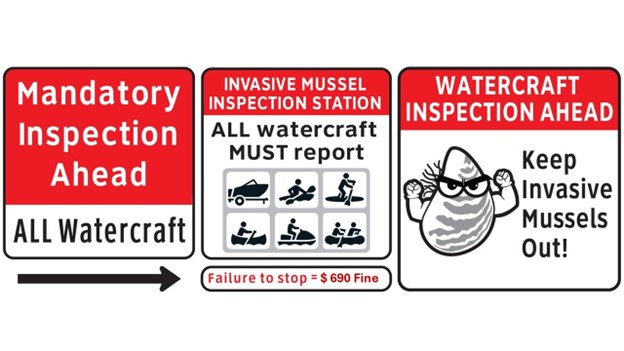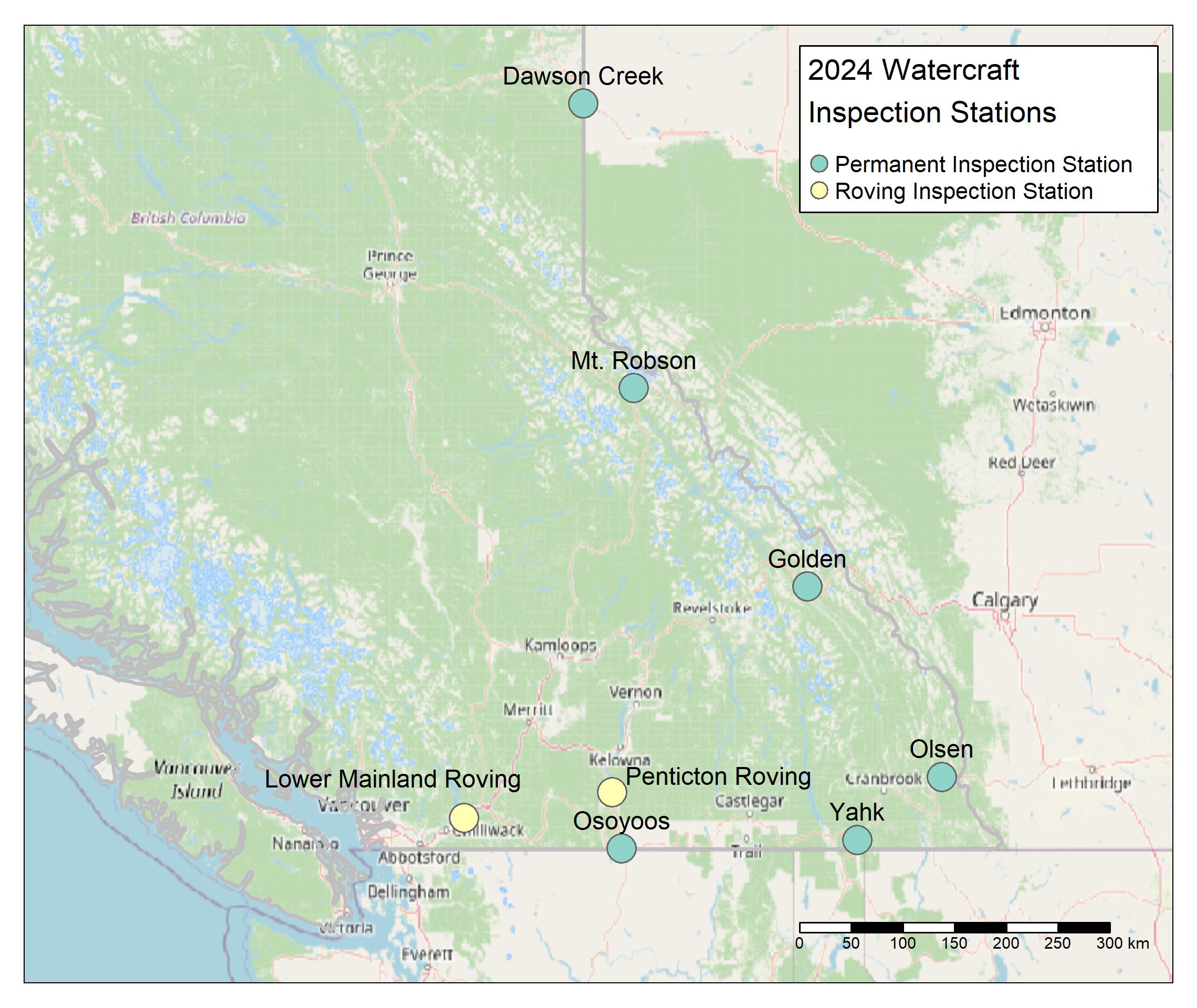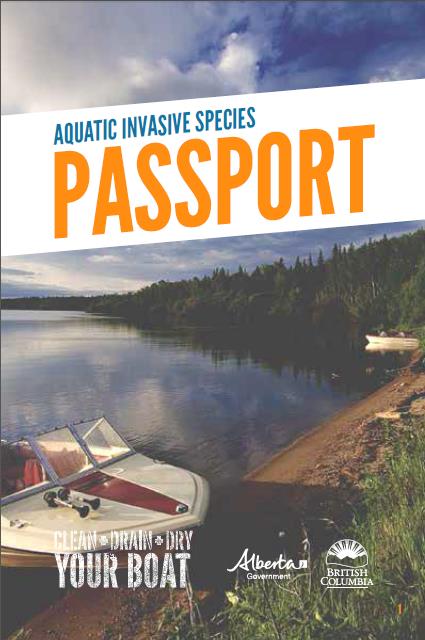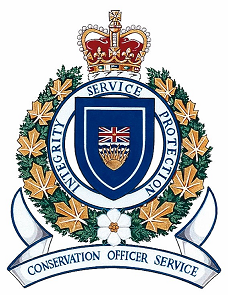B.C. watercraft inspection stations
If you are transporting a watercraft in B.C., you must stop and report to all invasive mussel watercraft inspection stations along your travel route. Watercraft includes sailboats, motorboats, car toppers, kayaks, canoes, and paddle boards being transported in B.C. The B.C. Conservation Officer Service has a team of specialized inspectors checking and, if necessary, decontaminating watercraft being transported into B.C.
Inspectors are trained in watercraft inspection and decontamination following the standard protocol that is used across the Pacific Northwest. All watercraft owners coming through watercraft inspection stations are asked a series of questions by the inspectors to determine if the watercraft is high or low risk. Two key questions asked by inspectors to determine watercraft risk are:
- Where was the watercraft in the last 30 days?
- How long has the watercraft been out of the water?
Any watercraft or equipment that has been launched in any waters of a province or state known or suspected of having zebra or quagga mussels in the past 30 days is considered high-risk. Any watercraft or equipment that is coming from or is registered to a state or province that is known or suspected of having zebra or quagga mussels and is not clean, and to the extent determined as practical by inspectors has not been drained and dried is considered high-risk, even if it has been out of the water for over 30 days. Any watercraft that is dirty, crusty or slimy with the potential risk of transporting other aquatic invasive species is considered high-risk. Watercraft that have only been used within British Columbia or other non-contaminated provinces or states within the last 30 days and are found to be clean, drain, dry and free of mud, debris, plants or any other AIS are considered low-risk.
Fines for failing to stop
Under Provincial legislation, all watercraft entering B.C. and passing by an open inspection station must report in. Failure to stop at an open inspection station could result in a $345 fine. In 2021, 85 tickets and 45 warnings were issued by conservation officers to motorists for failing to stop at inspection stations. Watercraft operators who fail to stop at an inspection station are being reported to the Report All Poachers and Polluters (RAPP) hotline and full time conservation officers are responding and following up.
2023 watercraft inspection season
B.C. watercraft inspection stations (see map below) opened on April 1st, 2023 to mark the start of the 2023 season and most stations will be operational until late October.
The 2023 inspection station locations and hours of operation were selected and adjusted using data collected from past seasons and lessons learned from other jurisdictions across western Canada and the United States. The locations are assessed for suitability as a watercraft inspection station based on volume of boater traffic, public and staff safety and communication, direction of traffic targeted, and the number of high-risk and mussel infested watercraft intercepted.
If you are transporting a watercraft in B.C. it is mandatory to stop and report to all invasive mussel watercraft inspection stations along your travel route. Failing to stop at an inspection station can result in a fine of $345.


BC-AB Passport Program
In 2017 B.C. and Alberta launched a joint watercraft passport program. The passport is available for boaters who travel between B.C. and Alberta and those who only travel within B.C. Boaters can voluntarily sign up for a passport at any provincial watercraft inspection station. Provincial inspectors will ask the boater a series of questions to determine if they qualify for a passport. When passports are issued, boaters will be asked to sign a commitment to practice Clean, Drain, Dry and stop at all inspection stations. It is still mandatory for all passport holders to stop at inspection stations, but the inspection process is quicker. The passport is stamped each time a boater goes through an inspection station in B.C. or Alberta.

Program funders


